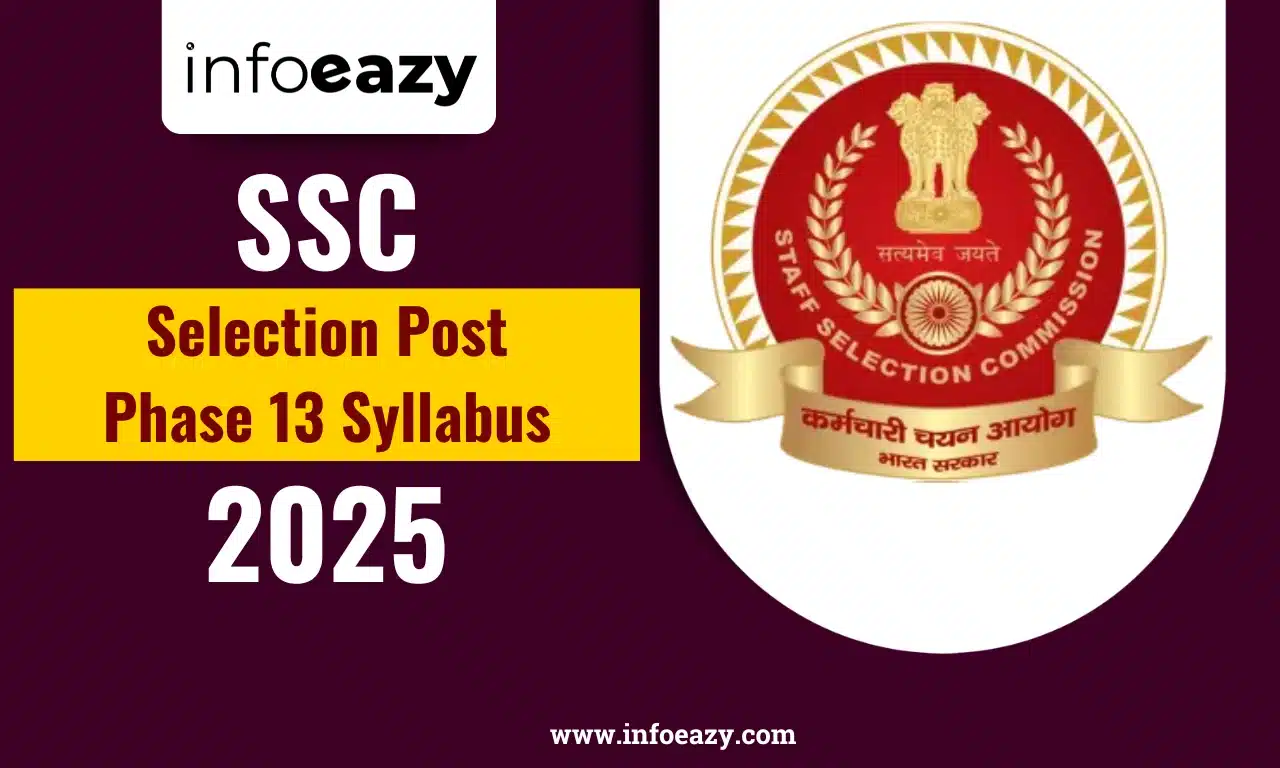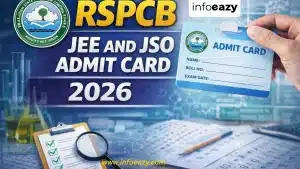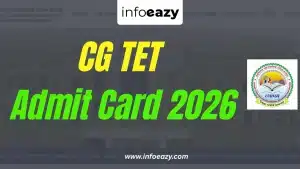The Staff Selection Commission (SSC) conducts the Selection Post Phase 13 Exam 2025 to hire eligible candidates for different jobs in various ministries, departments, and government offices across India. The exam is designed based on the educational qualification needed for each post- Matriculation (10th), Higher Secondary (12th), and Graduation level. Students who want to apply should check the detailed SSC Selection Post Phase 13 Syllabus 2025 PDF based on their qualification to prepare well for the exam.
SSC Selection Post Phase 13 Syllabus 2025
To qualify SSC Selection Post Phase 13 Exam 2025, a thorough understanding of the SSC Selection Post Phase 13 Syllabus 2025 is essential. Familiarity with the exam pattern and the subject areas it encompasses enables candidates to prepare strategically. The SSC Selection Post Phase 13 Syllabus 2025 PDF is divided into four key sections: General Awareness, Quantitative Aptitude, General Intelligence and Reasoning, and English Language Comprehension. Each section is designed to evaluate specific competencies vital for various government roles.
SSC Phase 13 Syllabus 2025 Overview
Candidates can refer to the table below to get the SSC Phase 13 Syllabus 2025 Overview:
| SSC Phase 13 Syllabus Overview |
Aspect
|
Description
|
| Conducting Body |
Staff Selection Commission |
| Position Name |
SSC Selection Post Phase XIII/2025 Selection Posts |
| Category |
SSC Selection Post Syllabus |
| Selection Process |
Written Examination (CBT), Skill Test, Document Verification |
| Syllabus |
General Awareness, Quantitative Aptitude, General Reasoning, English Comprehension |
| Official Site |
ssc.gov.in |
SSC Selection Post 13 Syllabus 2025 PDF
To effectively plan your preparation and stay aligned with the official topics, the detailed SSC Selection Post 13 Syllabus 2025 PDF will be released along with the official notification. Candidates are advised to regularly check for updates. Candidates can download the SSC Selection Post Phase 13 Syllabus PDF from the official portal or can refer the official notification for detailed syllabus.
SSC Selection Post 13 Exam Pattern 2025
The SSC Selection Post Exam 2025 is conducted in an online mode and consists of 100 objective-type multiple-choice questions (MCQs). Each question carries equal marks, and the total duration of the exam is 60 minutes. Candidates must note that there is a negative marking of 0.50 marks for each incorrect response. The detailed SSC Selection Post 13 Exam Pattern 2025 is outlined below:
| SSC Selection Post 13 Exam Pattern 2025 |
| Subjects |
No. of Qs |
Max. Marks |
Duration |
| English Language |
25 |
50 |
1 hour (80 minutes for candidates eligible for scribes) |
| Quantitative Aptitude |
25 |
50 |
| General Intelligence |
25 |
50 |
| General Awareness |
25 |
50 |
| Total |
100 |
200 |
SSC Selection Post Phase 13 Syllabus for Matriculation Level
The SSC Selection Post Phase 13 Syllabus for Matriculation Level assesses candidates on fundamental knowledge and skills across four key areas. The syllabus is designed to evaluate basic comprehension, numerical aptitude, general awareness, and reasoning abilities. Below is the subject-wise syllabus for Matriculation Level:
| SSC Selection Post Phase 13 Syllabus for Matriculation Level |
| Subject |
Syllabus |
| General Intelligence |
- Non-verbal type questions
- Similarities and differences
- Space visualization
- Problem-solving, analysis, judgment, decision-making
- Visual memory
- Discriminating observation
- Relationship concepts
- Figure classification
- Arithmetical number series, non-verbal series
|
| General Awareness |
- General awareness of the environment and its application to society
- Current events knowledge
- Sports
- History and Culture
- Geography
- Economic scene
- General Polity including Indian Constitution
- Scientific Research
|
| Quantitative Aptitude |
- Number Systems
- Computation of Whole Numbers
- Decimals and Fractions and relationship between Numbers
- Fundamental arithmetical operations
- Percentages
- Ratio and Proportion
- Averages
- Interest
- Profit and Loss
- Discount
- Use of Tables and Graphs
- Mensuration
- Time and Distance
- Ratio and Time
- Time and Work
|
| English Language |
- Basics of the English Language
- Vocabulary
- Grammar
- Sentence Structure
- Synonyms
- Antonyms and their correct usage
|
SSC Selection Post Phase 13 Syllabus for Higher Secondary Level
The SSC Selection Post Phase 13 Syllabus for Higher Secondary level evaluates candidates on their proficiency across four core areas, General Intelligence, General Awareness, Quantitative Aptitude, and English Language. The syllabus is designed to assess analytical skills, comprehension ability, numerical proficiency, and awareness of current events and basic concepts. A detailed breakdown of the syllabus for the Higher Secondary level is provided below:
| SSC Selection Post Phase 13 Syllabus for Higher Secondary level |
| Subject |
Syllabus |
| General Intelligence |
- Verbal And Non-Verbal Type
- Semantic Analogy,
- Symbolic Operations,
- Symbolic/Number Analogy,
- Trends,
- Figural Analogy,
- Space Orientation,
- Semantic Classification,
- Venn Diagrams,
- Symbolic/Number Classification,
- Drawing Inferences,
- Figural Classification,
- Punched Hole/Pattern-Folding & Unfolding,
- Semantic Series,
- Figural Pattern – Folding And Completion,
- Number Series,
- Embedded Figures, Figural Series,
- Critical Thinking, Problem Solving, Emotional Intelligence,
- Word Building,
- Social Intelligence,
- Coding And Decoding,
- Other Sub-Topics, If Any Numerical Operations
|
| General Awareness |
- Environment and its application to society.
- Current events
- History,
- Culture,
- Geography,
- Economic Scene,
- General polity and
- scientific research.
|
| Quantitative Aptitude |
- Arithmetic,
- Number Systems,
- Computation of Whole Numbers, Decimals and Fractions,
- Relationship between numbers
- Fundamental arithmetical operations:
- Percentages,
- Ratio and Proportion,
- Square roots,
- Averages,
- Interest (Simple
- and Compound),
- Profit and Loss, Discount,
- Partnership Business,
- Mixture and Allegation,
- Time and distance,
- Time and work.
- Algebra
- Geometry
- Mensuration
- Base Trigonometry
- Statistical Charts
|
| English Language |
- Spot the Error,
- Fill in the Blanks,
- Synonyms/ Homonyms, Antonyms,
- Spellings/ Detecting Mis-spelt words,
- Idioms & Phrases,
- One-word substitution,
- Improvement of Sentences,
- Active/ Passive Voice of Verbs,
- Conversion into Direct/ Indirect narration,
- Shuffling of Sentence parts,
- Shuffling of Sentences in a passage,
- Cloze Passage,
- Comprehension Passage.
|
SSC Selection Post Phase 13 Syllabus for Graduation Level
The SSC Selection Post Phase 13 Syllabus for the Graduation level is designed to assess candidates on a wide range of subjects relevant to government job roles requiring a graduate qualification. This level of the exam evaluates an individual’s reasoning abilities, general awareness, numerical aptitude, and proficiency in the English language. A clear understanding of the syllabus is crucial for effective preparation. The detailed subject-wise syllabus for the Graduation Level is presented in the table below.
| SSC Selection Post Phase 13 Syllabus for Graduation Level |
| Subject |
Syllabus |
| General Intelligence |
- verbal and non-verbal type.
- analogies, similarities and differences,
- space visualization,
- spatial orientation,
- problem-solving,
- analysis, judgment, decision-making,
- visual memory,
- discrimination,
- observation,
- relationship concepts,
- arithmetical reasoning and figural classification,
- arithmetic number series, non-verbal series,
- coding and decoding,
- statement conclusion,
- syllogistic reasoning etc.
- Semantic Analogy,
- Symbolic/Number Analogy,
- Figural Analogy,
- Semantic Classification,
- Symbolic/ Number Classification,
- Figural Classification,
- Semantic Series,
- Number Series,
- Figural Series,
- Problem Solving,
- Word Building, Coding & de-coding,
- Numerical Operations,
- symbolic Operations,
- Trends,
- Space Orientation, Space Visualization,
- Venn Diagrams,
- Drawing inferences,
- Punched hole/ pattern –folding & un-folding,
- Figural Pattern – folding and completion,
- Indexing,
- Address matching,
- Date & city matching,
- Classification of centre codes/ roll numbers,
- Small & Capital letters/ numbers
- coding, decoding and classification,
- Embedded Figures,
- Critical thinking, Emotional Intelligence, Social Intelligence
|
| General Awareness |
- Environment and its application to the society.
- Current events
- History,
- Culture,
- Geography,
- Economic Scene,
- General polity and
- scientific research.
|
| Quantitative Aptitude |
- numbers,
- Percentage,
- Ratio & Proportion,
- Square roots,
- Averages,
- Interest,
- Profit and Loss,
- Discount,
- Partnership Business,
- Mixture and Allegation,
- Time and distance,
- Time & Work,
- Basic algebraic identities of School Algebra & Elementary surds,
- Graphs of Linear Equations,
- Triangle and its various kinds of centres,
- Congruence and similarity of triangles,
- Circle and its chords,
- tangents,
- angles subtended by chords of a circle,
- common tangents to two or more circles,
- Triangle,
- Quadrilaterals,
- Regular
- Polygons,
- Circle,
- Right Prism,
- Right Circular Cone,
- Right Circular Cylinder,
- Sphere, Hemispheres,
- Rectangular Parallelepiped,
- Regular Right Pyramid with triangular or square base,
- Trigonometric ratio,
- Degree and Radian Measures,
- Standard Identities,
- Complementary angles,
- Heights and Distances,
- Histogram,
- Frequency polygon,
- Bar diagram & Pie chart.
|
| English Language |
- English, basic comprehension and writing ability
- The questions in Parts A, B, & D will be of a level commensurate with the essential qualification viz. Graduation and questions in Part C will be of 10th standard level.
|
SSC Selection Post Phase 13 Syllabus 2025 FAQs
Q1. What is the exam pattern for SSC Phase 13 notification 2025?+
Ans. SSC Phase 13 exam 2025 has 100 questions from General Intelligence, Awareness, Quantitative Aptitude, and English; 60 minutes duration with 0.50 negative marking.
Q2. What is the salary for selection post exam phase 13 2025?+
Ans. The SSC Selection Post Phase 13 salary for 2025 varies by post and region, with basic pay ranging from ₹5,200 to ₹34,800 and grade pay between ₹1,800 and ₹4,800. In-hand monthly salaries typically range from approximately ₹32,000 to ₹83,000, depending on the pay level and allowances applicable to the specific post and location.
Q3. What is the syllabus of Chsl 2025?+
Ans. SSC CHSL 2025 syllabus includes General Intelligence, Quantitative Aptitude, English, General Awareness in Tier 1; Tier 2 adds Reasoning, Maths, English, GK, and Computer.
Q4. What is the syllabus of the SSC post office exam?+
Ans. The SSC Post Office exam syllabus includes General Intelligence, Quantitative Aptitude, General English, and General Awareness, focusing on basic reasoning, math, grammar, and current affairs.
Q5. What is SSC selection post salary?+
Ans. SSC Selection Post salary ranges from ₹18,000 to ₹1,42,400 per month, depending on the post level (Matriculation, 10+2, or Graduation level).
Infoeazy Editor
Infoeazy provides clear, reliable content for all major government exams like SSC, Banking, Railways, State PSCs, and Defence. Get simplified notes, current affairs, and tests to boost your preparation and save time.




